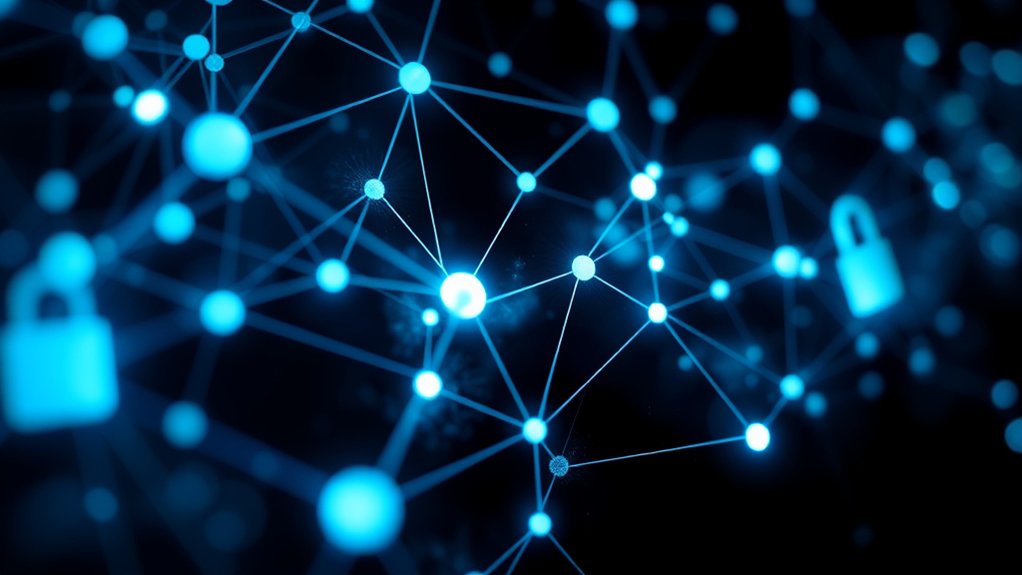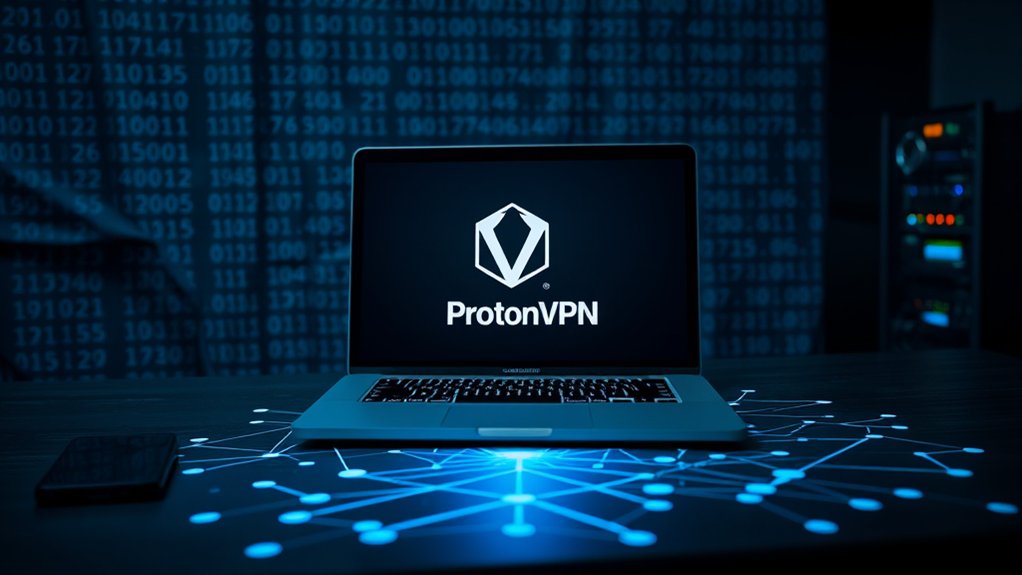The dark web constitutes a portion of the deep web, accessed through specialized networks like Tor and I2P. It uses onion routing and encryption to guarantee user anonymity, making it a valuable resource for activists and journalists. Nevertheless, it furthermore hosts illegal marketplaces for drugs and weapons. Participants must navigate this environment with caution, employing stringent security measures. Understanding these complexities is crucial, as they illuminate both the opportunities and risks associated with the dark web. Further insights await those who seek them.

How the Dark Web Works
The dark web, a small segment of the deep web, operates on specialized networks like Tor (The Onion Router) and I2P, designed to provide users with anonymity. This digital frontier can only be accessed through particular software configurations that facilitate secure browsing and communication. Significantly, the Tor browser exemplifies this, employing a technique known as onion routing to mask IP addresses and identities, creating layers of encryption that safeguard user information.
The dark web, using networks like Tor, ensures user anonymity through encrypted communication and specialized software configurations.
Within the dark web, users benefit from anonymous communication channels, critical for those seeking privacy. The architecture of the dark web consists of encrypted traffic that is routed through multiple nodes, each contributing a layer of security. As individuals navigate this environment, their data continually travels through decentralized nodes, ensuring their identities and locations remain hidden from prying eyes. This anonymity is paramount for various users, including activists, journalists, and individuals residing in oppressive regimes, who rely on these technologies to protect sensitive information. Notably, the dark web represents a subset of the deep web, which encompasses content that is not indexed by search engines. Furthermore, many beginners should recognize the importance of anonymity and security when venturing into this space, as they are key to protecting one’s identity.
Additionally, the dark web hosts a diverse array of content, both legal and illegal. Legal applications include secure platforms for activists to communicate and circumvent censorship, whereas illegal marketplaces often sell illicit goods and services, manifesting the dual-edged nature of this network. The prevalence of illegal products reflects the growing sophistication of dark web marketplaces that resemble conventional e-commerce sites.
For instance, infamous markets offer not only drugs and weapons but likewise hacking tools and stolen personal data, raising significant cybersecurity concerns. Cryptocurrencies, such as Monero, improve transaction obfuscation, complicating law enforcement efforts to track illegal activities.
To navigate the dark web safely, users must adopt stringent security measures. Regular software updates, the use of strong antivirus protection, and VPNs can reinforce personal safeguarding, even if reliance solely on these tools is inadequate.
For informed users, the dark web presents both risks and opportunities, highlighting the delicate balance between privacy and legality within this clandestine digital space.
Frequently Asked Questions
Is Accessing the Dark Web Illegal?
Accessing the dark web itself is not illegal in many jurisdictions, including the United States. The legality hinges on the specific activities conducted after access is gained.
Although tools like Tor facilitate entry, they serve a variety of purposes, including legitimate secure communication and privacy protection.
Law enforcement agencies primarily target illegal actions, such as drug trafficking and identity theft, rather than penalizing users for merely accessing the dark web.
Can I Browse the Dark Web Safely?
Browsing the dark web safely requires a combination of tools and best practices. Utilizing the Tor browser, combining it with a VPN for additional security, and ensuring strong antivirus measures on devices create a foundation for safe exploration.
Experts highlight the importance of avoiding downloads from untrusted sources and regularly updating software to prevent malware infections.
Furthermore, minimal personal data exposure and the use of strong passwords can greatly mitigate risks associated with dark web activities.
What Types of Content Are Found on the Dark Web?
The dark web hosts a variety of content, primarily divided into marketplaces and community forums.
Marketplaces facilitate the exchange of illicit goods such as drugs, weapons, and stolen data.
Community forums offer anonymous discussion spaces for activists, cybercriminals, and whistleblowers.
Moreover, encrypted communication channels support secure messaging and information sharing, as well as databases that may include sensitive leaks.
According to cybersecurity experts, these platforms are essential for anonymity yet pose substantial legal and ethical challenges.
How Do I Remove My Personal Information From the Dark Web?
Removing personal information from the dark web is highly challenging, if not impossible. Once data is exposed, it is replicated rapidly across various platforms.
Experts highlight that preventive measures, such as credit monitoring and identity theft protection, are vital. Moreover, changing compromised passwords and employing multi-factor authentication strengthens security.
Organizations recommend regular software updates and specialized dark web monitoring services to alert users when their information surfaces, assisting in mitigating potential risks effectively.
Are There Any Legal Uses for the Dark Web?
The dark web accommodates several legal uses, primarily facilitating secure communication and protecting individual privacy. Activists utilize this medium to bypass censorship, whereas journalists can safely share sensitive information.
Various communities cultivate discussions on hobbies or political issues anonymously. Additionally, encrypted platforms for data sharing improve research opportunities.
According to cybersecurity experts, such legal activities underscore the dark web’s potential for promoting freedom of expression, in spite of prevailing concerns regarding illegal operations and anonymity.








